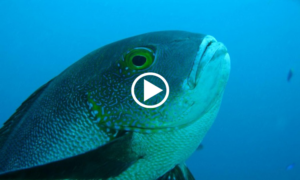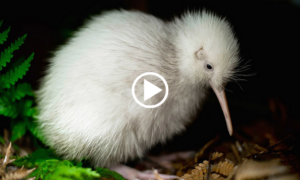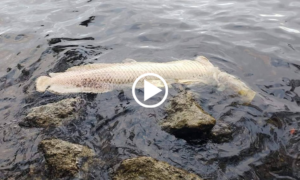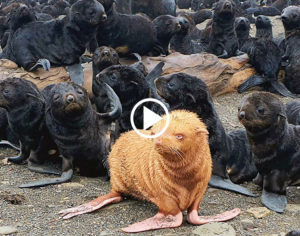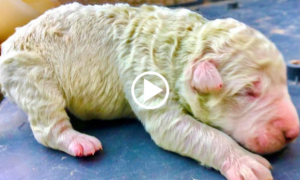The hybrid of the American spoon sturgeon with the Russian sturgeon exhibits many characteristics similar to the parent fish, surprising the researchers.
At first glance, the American spoon sturgeon and the Russian sturgeon look like two distinct species of fish. The Russian sturgeon is a carnivore that hunts crustaceans and small fish at the bottom of rivers, lakes and coastal waters. Meanwhile, the American Spoon Sturgeon specializes in filtering water for plankton with its long snout covered with tens of thousands of sensory receptors. However, American sturgeon sperm and Russian sturgeon eggs combined in the laboratory, resulting in the birth of a hybrid species.
The sturgeon and spoon sturgeon are among the slowest growing, longest living, and largest freshwater fish on Earth. They are also among the most endangered fish species. Habitat loss, overfishing and pollution have severely affected sturgeon and sturgeon over the past century. This is why Attila Mozsár, a doctoral student at the Institute of Fisheries and Fisheries in Hungary, and her colleagues sought to breed these two species of fish in captivity.
Last year, researchers sought to apply gynogenesis, a type of reproduction that requires the presence of sperm to stimulate egg development without affecting DNA. However, they were very surprised when they found out that the spooned sturgeon sperm had been successfully fertilized on sturgeon eggs. “We had no intention of creating hybrids. It was completely unexpected,” said Mozsár. Hundreds of hybrid fish hatch from eggs and a month later, more than two-thirds of them are still alive. To date, around 100 hybrid fish have survived.
The American spoonbill and the Russian sturgeon are both considered “living fossils” due to their ancient origins. Their most recent common ancestor lived around the same time as the dinosaurs. These two species evolved independently at each end of the planet over 184 million years. This leads researchers to believe that they have diverged too much in evolution to be able to interbreed.
The hybrid fish created by the Hungarian research team exhibits characteristics of both species. While all have mouthparts and voracious appetites similar to the mother’s, some have similar fins and muzzles to the parent, but are slightly smaller. After performing DNA analysis of the eight hybrid fish, the researchers separated them into two groups. One group had twice as much DNA from the mother, so it looked more like a sturgeon than a spoon sturgeon. The other group received almost equal amounts of DNA from mother and father and looked like perfect copies of both species.
The crossing of the two species proves that the American sturgeon and the Russian sturgeon have more in common than previously thought. They all have smooth skin, twisted intestines, and cartilaginous skeletons. Although Mozsár and his colleagues plan to continue caring for the hybrid, they have no plans to create more as it would threaten wild populations.
The oldest fish in the world lives in coral reefs
Very rare white kiwi bird dies
Amazon Arowana makes an appearance in Florida
Rare yellow fur seal with blue eyes
White dog gives birth to green baby



